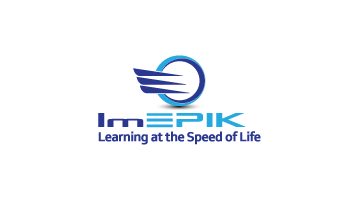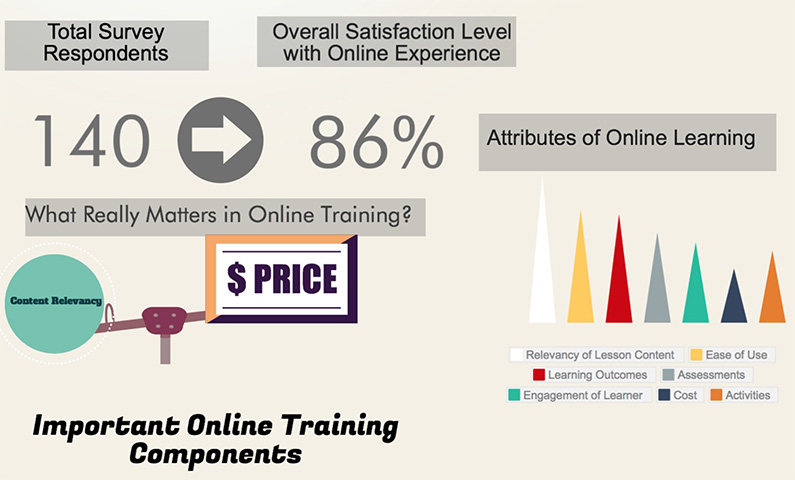As someone who recently switched industries and is now an executive in a business development role for a curriculum development company that provides a 100% online PCQI course, I was trying to determine which of the many events to attend in the food industry.
After some research, I decided to attend the 7th Annual 2019 Food Safety Consortium Conference & Expo and felt it would be helpful for anyone in a business development or sales/marketing role to have some details and tips about how I prioritize events. I also wanted to provide additional information for those in a C-level, Director, Manager, etc. position that are setting plans for the remainder of 2019 and establishing plans for 2020.
Location, Location, Location!!!
Rick Biros, president of Innovative Publishing Co., has more than 25 years of experience in the food industry and is very well known and respected. Rick saw the need for this type of event due to the variety of changes in the industry. Rick and his team did the research on the best place to have the event, which included considerations like ease of access to airports, hotel cost and percentage of food manufacturers in the area. His team found that the Schaumburg, IL area has the highest concentration of food manufacturers within a 200-mile radius. In addition, Chicago O’Hare airport is only a 30-minute ride to the beautiful Renaissance Schaumburg Convention Center where this event has been held. The Consortium team was able to negotiate a very reasonable hotel rate of around $175/night, which is a terrific deal for this area. It is also close enough to downtown Chicago that if you want to stay an extra day or two or take your team out, you have plenty of options available.
Two Great Events for One Price!
This year the Food Safety Consortium Conference & Expo is co-located with the Cannabis Quality Conference & Expo this year. Anyone in the food industry understands how fast things are expanding and changing within the cannabis industry, not to mention that the state of Illinois has approved adult use effective January 2020. Both events will share the same exhibit area, which is a tremendous plus for anyone who is trying to make contacts within both industries and has invested in a booth space. This also means that attendees from both events will be a part of the social mixer events on Tuesday and Wednesday evenings, facilitating additional networking opportunities.
Decision Makers Are Present
There are many different events within the food industry, but few have a high percentage of the actual decision makers in attendance. Often, they are made up of a variety of people from the education, government and industrial sectors of the industry that may be students, entry-level management, etc. Based on the attendance from the past, 98% of attendees to this event are within the Industrial sector of the food industry. More importantly, due to the contacts that Rick & team have made over the past years, the C-level and mid-level management make up a very large portion of those that attend this event. This enables attendees to network with those who can make the key decisions that may impact your company’s growth, as opposed to talking with someone about what your company offers only to find out they are multiple levels of approval that need to happen before even moving forward to present a proposal.
Training & Expo Discount Combinations
While there are numerous options provided within registering for this dual conference event, one option is to take advantage of the discounted rate on combining event attendance with training. One of these training options is offered by my company, ImEpik, which offers full-access to the Expo and conference sessions, and includes our 100% online PCQI course that is self-paced and available 24/7 for your convenience. The Innovative Publishing team has agreed to offer both for the low price of $895. That is lower than ImEpik’s retail cost, minus any promotions, for just the course itself –so the fact that you can get both our course and a full-conference pass to the Food Safety Consortium and the Cannabis Quality Conference is a tremendous value for any company. One other detail is the person attending doesn’t have to be the person that is given access to the training. The attendee may be senior level management who doesn’t need additional training but may need someone within his or her staff to receive PCQI training. Additional details about the training we offer are available on ImEpik’s website.
Team Building & Leadership Is a Priority
There are three breakout sessions that occur throughout the event. Each of those sessions will fall into one of the following categories:
- Food Safety & Testing
- Sanitation & Operations
- Food Safety Leadership
As many folks that I have personally spoken with at various events have attested, typically the leadership in the food industry is more “technical” in their leadership. One focus at the event this year is break-out sessions that focus on topics such as empowered leadership, team-building, and enabling teams that are afraid of making mistakes and therefore may not voice their opinion, which may include some positive ideas for company leaders. Come join Kathryn Birmingham, V.P. of Research & Development at ImEpik, and I as we present: Beyond meeting the FSMA regulations, the business case for PCQI, Wednesday, October 2 at 2:45 PM.
In summary, I hope this article is helpful in your 2019/2020 event planning. The networking opportunity as well as the chance to take advantage of combined training packages, multiple Expos (Food Safety and Cannabis) and access to decision makers make this event a “must” to attend. For more details on the agenda, hotel, etc. please visit the Food Safety Consortium website. Hope to see you there, and please visit Imepik at booth 105 on the Expo floor.







